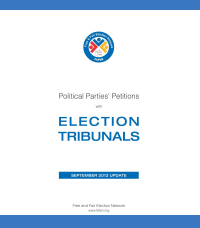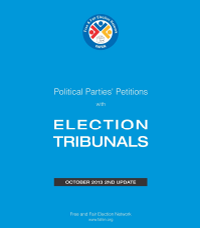Restrictions on women: At one polling station women were not present at any time. Another did not get a single female vote till noon.
ISLAMABAD, September 18, 2013: Four incidents of women being barred from voting were reported during the NA-25 (Dera Ismail Khan-cum-Tank) by-election on Wednesday.
The voting process was largely peaceful amid the heavy deployment of security personnel. However, female voters were disenfranchised in parts of the constituency where community elders had reportedly decided to bar women from voting.
Restrictions on women: Tracing Female Voters
FAFEN observers reported a complete absence of women at one polling station. Another two polling stations had not received a single female vote till 12pm. One of the observers also reported the absence of female polling staff at a polling station till 10:30am.
There were eight incidents where security officials barred FAFEN observers from entering polling stations, despite them having obtained accreditation cards from the Election Commission of Pakistan (ECP).
There were at least six instances of the polling process being stopped due to lunch, tea or prayer breaks.
Restrictions on women: Key Figures of Constituency
This update is based on direct field observations from 69 polling stations till 4pm. The preliminary report on the by-election is scheduled to be released on Thursday.
A total of 366,500 voters – 204,767 men and 161,783 women were registered for the by-election. The ECP set up 308 polling stations (77 male, 74 female and 157 combined) and deployed army personnel and FC troops in addition to police officials to maintain tight security at polling stations.
Background:
The seat was vacated by Maulana Fazlur Rehman of the Jamiat Ulema-e-Islam-Fazl (JUI-F), who emerged victorious from three other constituencies in the 2013 General Elections. Rehman had won the seat by securing 77,595 votes (39% of the votes polled) when the turnout was 53.26%, according to the ECP. The by-election was originally scheduled to take place on August 22, 2013 but was postponed due to security issues in the region.
How did FAFEN Work?
FAFEN deployed 24 trained, non-partisan and ECP-accredited citizens to observe the by-election at 172 polling stations. The observers were assigned to collect objective information on the quality of elections that feed into research-based recommendations for improvement of future elections.



